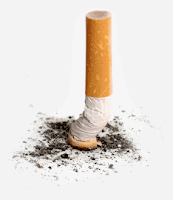 You don't need to shampoo daily. And the "no poo" movement suggests you don't do it at all. But if not washing your hair sounds flat-out gross, and yet you want to avoid some iffy chemicals, there are many all-natural shampoos. Image credit: stockxpert
You don't need to shampoo daily. And the "no poo" movement suggests you don't do it at all. But if not washing your hair sounds flat-out gross, and yet you want to avoid some iffy chemicals, there are many all-natural shampoos. Image credit: stockxpertFrom Live Science:
Shampooing can be complicated. First, there are the convoluted instructions: Lather, rinse, repeat. It doesn't say anything about stopping. And now there's a movement afoot, called the "no poo" movement, advocating no shampooing whatsoever.
Shampoo is indeed a modern invention, as the no-poo'ers attest, developed roughly around the end of the 19th century. And few of us need to be shampooing every day, dermatologists say. That said, the necessity for shampoo varies from person to person, depending on your hair type and what you put in to your hair each day.
Forgoing shampooing completely, if that concept even appeals to you, ultimately could be rough on your hair and rougher on your social interactions.
Read more ....


















